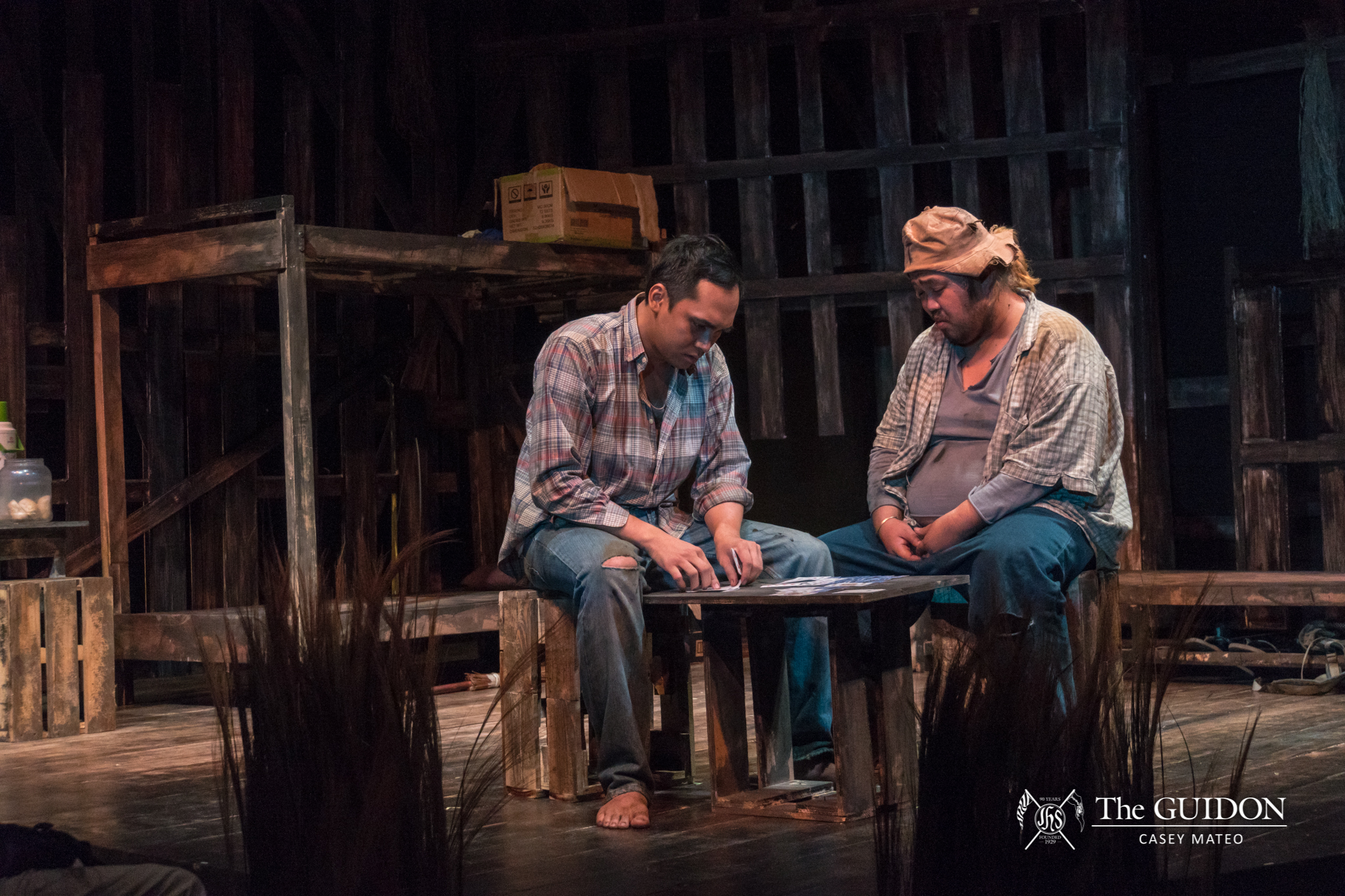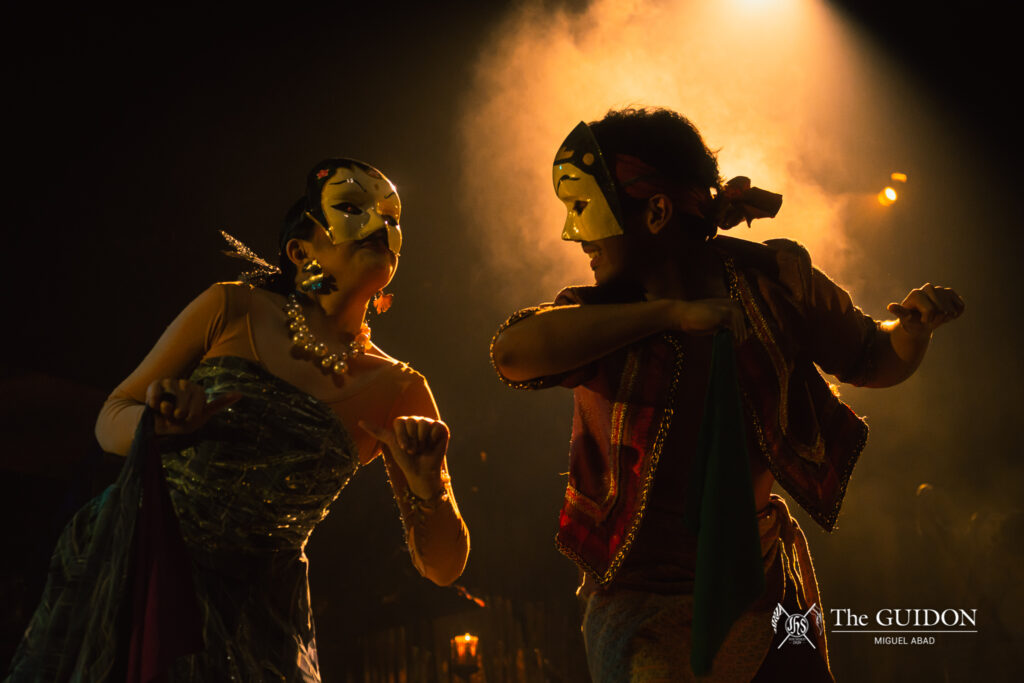A play nine years in the making, Katsuri–the Visayan word for mouse–demands to be heard in a Philippines characterized by political turmoil. Tanghalang Pilipino stages a timely Hiligaynon adaptation of John Steinbeck’s classic Of Mice and Men (1937) to seek justice for the unsung heroes of our country.
Katsuri follows the story of sugarcane workers Toto (Jonathan Tadioan) and George (Marco Viaña) as they desperately chase their dream of a better future. Spectators watch as Toto and George try to start new lives in a hacienda, having escaped from Hacienda Luisita after an unforeseen complication arises. Director Carlos Siguion-Reyna bleeds Bibeth Orteza’s magnetic script dry to take audience members on an undeniably emotional ride.
Escaping the rat race
Though the play’s themes and chronology stay true to Of Mice and Men, playwright Orteza seamlessly integrates the Filipino identity into Steinbeck’s story through humorous quips, cultural references, and mentions of local products and institutions. These allusions successfully localize the piece and build the perfect stage for Siguion-Reyna to draw crowds in with riveting, character-driven scenes.
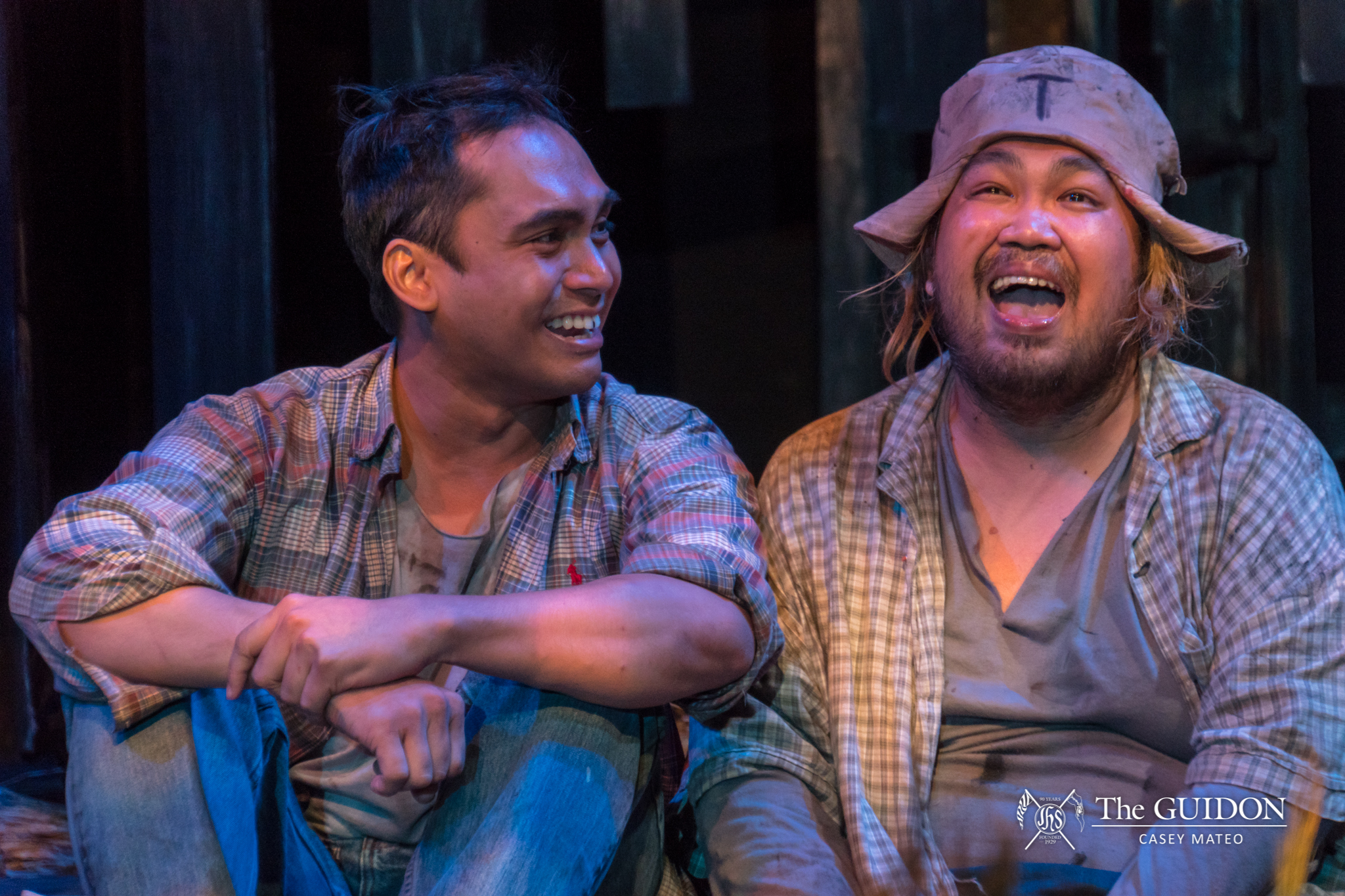
Tadioan’s Toto is a gentle giant, stealing hearts with his innocent and childlike demeanor. He makes frequent mention of his and George’s dream to run their own farm. Juxtaposing Toto is Viaña’s much more practical and seemingly cold George. From the play’s onset, audiences can see how deep the pair’s ties run. Friends since their childhood, the two leads come to bond over shared tragedies. Tadioan and Viaña’s natural chemistry brings these personalities to life. The playful banter and teasing remarks are delivered so effortlessly that it seems as though Tadioan and Viaña have been lifelong friends. It is impossible not to root for them, especially during the play’s more emotional scenes.
Accompanying their characters are fellow sugarcane workers who have been employed in the hacienda for quite some time: The veteran Tatang (Tata Nanding Josef), the rational figurehead Payat (JV Ibesate), the emotional Carling (Lhorvie Nuevo), and the stoic Monang (Eunice Pacia).
In contrast, Michael Williams’ Boss—the workers’ employer and Kulot’s father—is a sinister presence, radiating power and a sense of foreboding each time he steps on stage. Fitz Bitana plays his son Kulot, the antagonist audiences love to hate. Pompous with overflowing swagger, Bitana embodies his privilege and fragile masculinity with terrifying accuracy. Kulot’s wife, Inday (Antonette Go), seems irritatingly shallow and airheaded at first, but gradually reveals a surprising depth as the audience watches her onstage. These two groups are representative of social classes existing beyond the play, effectively highlighting a bitter truth: That success depends not only on hard work, but also on the opportunities you have.
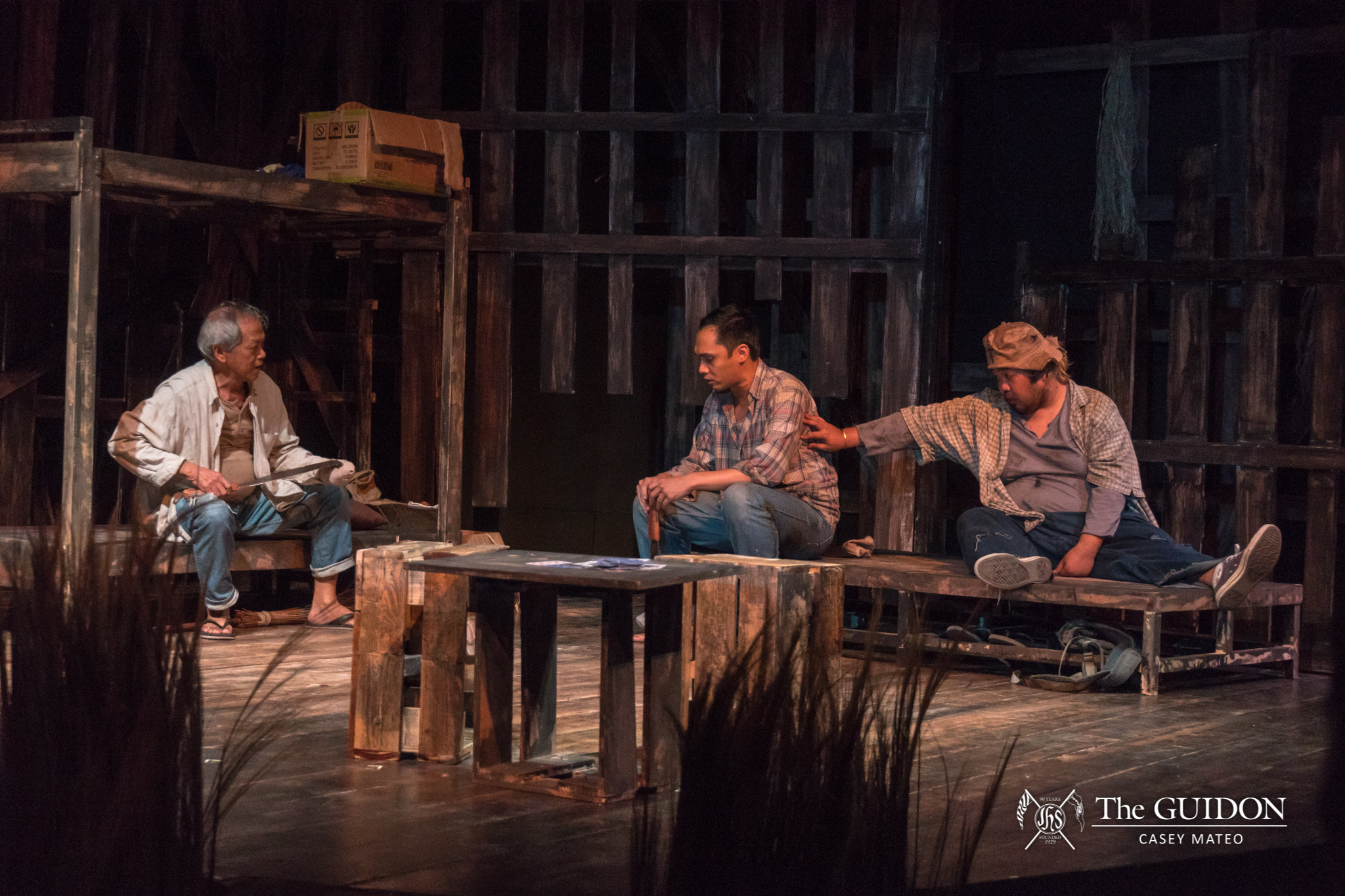
This story is given room to shine with the help of stage director Ohm David’s simple set, which transforms into a riverbank, workers’ quarters, and a stable with a few shifts and movements. Dennis Marasigan and DJ Ramos raise the stakes using eerie lighting and sound effects, respectively. The three work together to fashion a world that toes the delicate line between fact and fiction. Through a simple but realistic stage and dynamic effects, this production demands viewers’ complete and undivided attention.
Sense and sensibility
Tanghalang Pilipino presents an issue often heard on the news, but also allows audience members to see its emotional aspect. Taking cues from the 1985 Escalante Massacre, Katsuri gives Filipino farmers a platform to tell their stories. The challenges Toto, George, and their fellow sugarcane workers face may seem absurd at first, but a deeper look into the issues surrounding Filipino farmers and the Philippine agricultural industry proves otherwise. These farmers face a myriad of problems: Falling prices of palay, threats of violence, and tariffication constitute some of their more familiar realities.
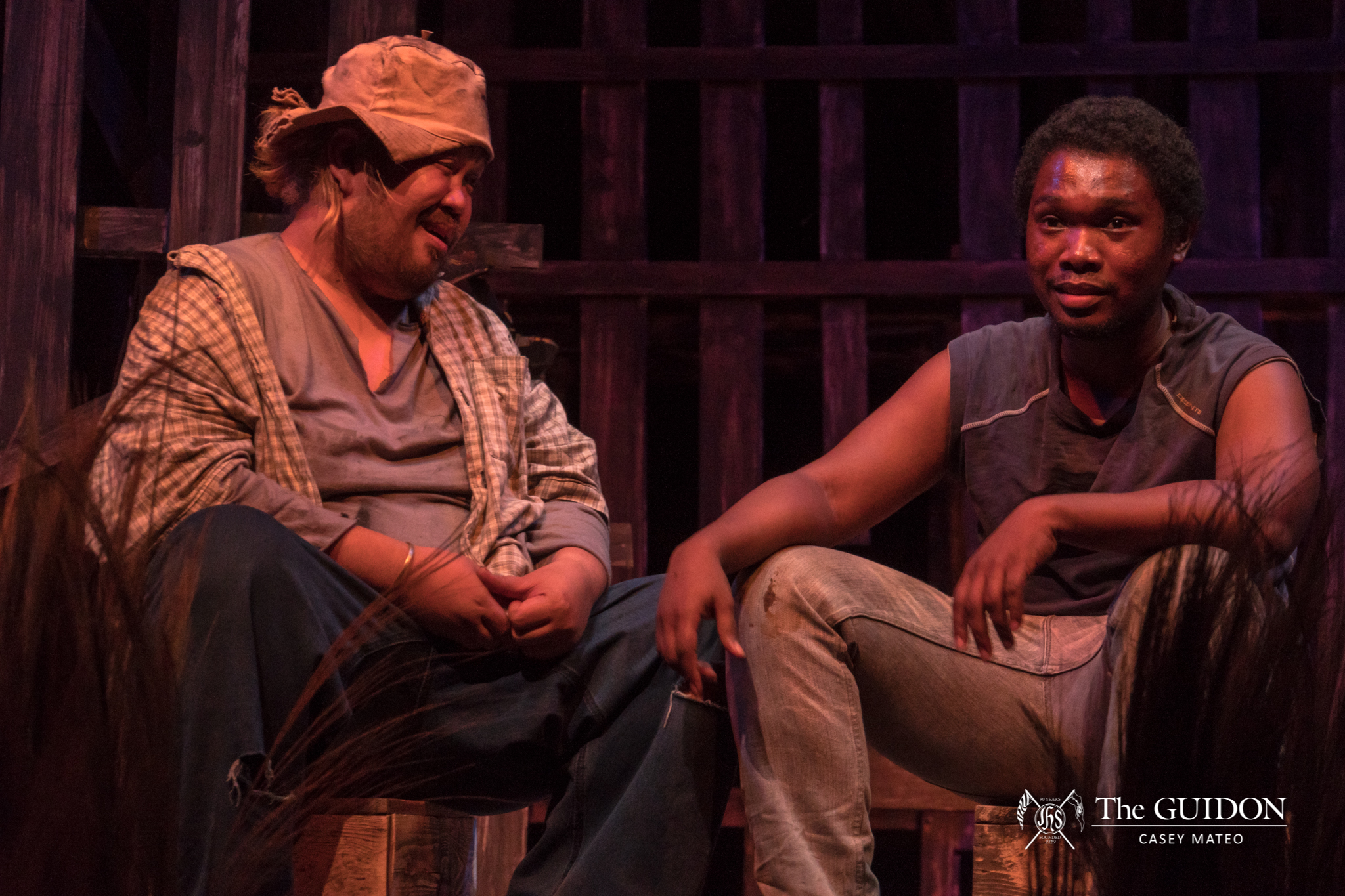
Yet, Siguion-Reyna mentions social connections and dreams as two of the main themes of the source material, telling viewers to keep listening to each other. In an era where sensitivity is a rarity, Siguion-Reyna reminds spectators, “Why we lose is because we lose our dreams and keep to ourselves for personal survival. [We don’t] reach out, and [we] turn away from each other.” He stresses the importance of doing each one’s part in demanding equality for all, particularly for issues such as that of the Filipino farmer.
With a strong script, a dynamic and talented cast, and clever audiovisual effects, Katsuri is a violent feast for the senses. Leaving no stones unturned, this production demands for attention and action toward the backbone of Philippine society: The Filipino farmer.
Katsuri runs on selected dates until October 27, 2019, at the Cultural Center of the Philippines Studio Theater (Tanghalang Huseng Batute).


